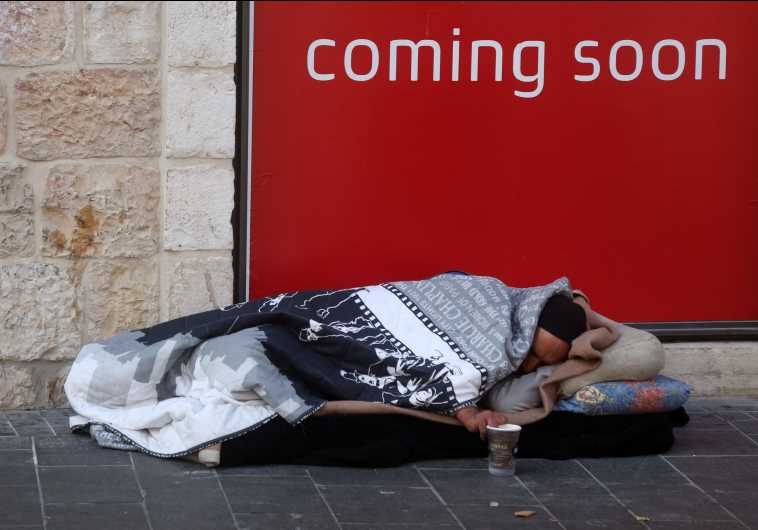Jerusalem nosedives in national socioeconomic ranking
The capital is now rated next to development towns Netivot and Ofakim, and behind Arab village Abu Ghosh.
 Homeless person on Jaffa Street in Jerusalem.(photo credit: MARC ISRAEL SELLEM/THE JERUSALEM POST)Updated:
Homeless person on Jaffa Street in Jerusalem.(photo credit: MARC ISRAEL SELLEM/THE JERUSALEM POST)Updated: